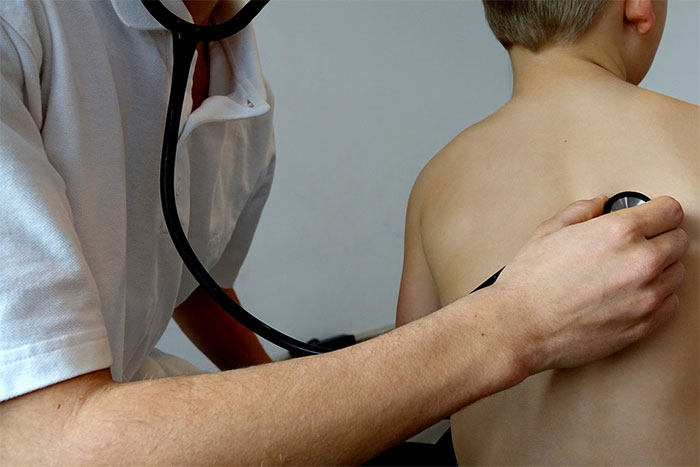Children are bound to get the sniffles and an upset stomach now and then, and most of the time these common childhood illnesses are nothing to worry about. The trouble is, when your child is sick, you naturally worry about missing the signs that it could be something more serious, which makes you stressed and results in unnecessary visits to the doctor. To complicate matters further, some more serious illnesses don’t present with clear symptoms to alert you to the situation, while mild infections that needn’t be a cause for concern can display some alarming symptoms. How do you know what’s best for your child when they’re sick?
Table of Contents
Temperature and Fever
Having a fever means your body temperature has risen above 98.6 degrees Fahrenheit, which is what would be considered normal for humans. A raised temperature doesn’t mean there is necessarily an infection or serious illness; in fact, many conditions can lead to fever as a normal part of the body’s healing processes, but there are signs to look out for in addition to a fever which indicates that medical attention is required. Drowsiness and lethargy that seems out of the ordinary, for example, if you have trouble getting your child to wake up properly need to be investigated. You should also look out for symptoms like headaches, stiff neck, earache, rashes, and severe sore throats, which could indicate an infection. Any kind of fitting or seizure should always be referred to a doctor. You should learn how to take your child’s temperature before you need to check for a fever and keep your thermometer somewhere where it’s easy to find. If it is a battery powered thermometer, make sure you always have spares in case they need replacing. If you have a baby under three months old whose rectal temperature is 100.4 F or over, or a child of any age with a fever over 104 F, you should contact your doctor immediately or go to the emergency room.
Coughs and Colds
Colds and sniffles are an inevitable part of life for everyone, and for the most part are nothing to worry about. Each cold will have broadly similar symptoms but will vary to the extent that sometimes the sore throat is the worst part, sometimes the cough, and the degree to which a cold will make your child feel ill will vary too. As long as there are none of the signs listed above present, your child should be able to fight off the infection very successfully with a few days rest. Over the counter medicines are generally not recommended for very young children, and many don’t offer a great deal of help anyway. If your child has a particularly severe cough, it could be down to croup, or possibly whooping cough if they haven’t been inoculated. It’s important to know when to go to get urgent care for cough symptoms that are causing your child distress, so have the contact details and addresses of clinics and pharmacies that can help programmed into your phone just in case you need them.
Diarrhoea and Vomiting
Like coughs and colds, most times when a child has D & V, it’s nothing to be too worried about. It’s usually down to a stomach bug, or bacteria they’ve picked up in their food or from people they’ve been in contact with. The main thing is to keep them cool and encourage them to drink plenty of clear fluids to keep them hydrated. Dehydration is the most common side effect of sickness because kids understandably don’t feel like drinking when they’ve been vomiting. However, dehydration can lead to more serious complications like kidney infections or dysfunctions, so you should look out for signs of dehydration such as dry skin and mouth, and monitor how often they pass urine. You should also check the color, as dark urine is a good indication of dehydration. If you suspect they are not getting enough fluids, see your doctor for help with rehydration using electrolytes before it gets to the point where they need to be put on intravenous fluids.
Common childhood illnesses are generally no cause for alarm, and in fact, play an important part in building up the body’s immune system. As you get older you’ll find you probably get fewer colds, for example, as your body builds up immunity to the viruses you’ve already had. However, kids have little immunity to begin with and so are vulnerable to picking up bugs, especially as they are mixing with so many other children at school. The best way to help your kids is to keep yourself informed about how to care for them and the signs to watch for, and trust your instincts – if you are worried, get them checked out; after all, it’s better to be safe than sorry.












Leave a Reply